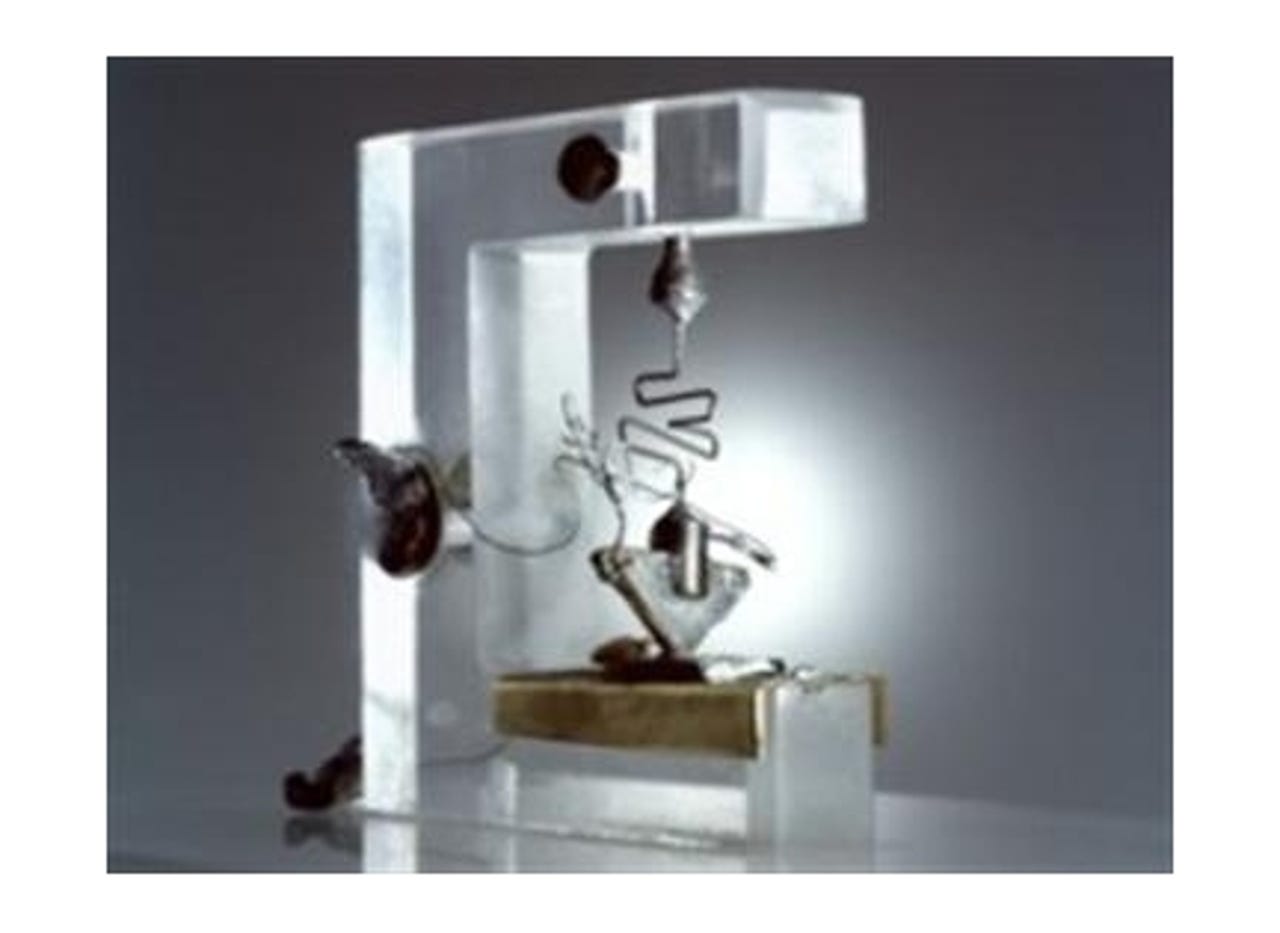Modern computing on the head of a pin


They don't make them like this anymore. We cast an eye back over the ever-shrinking transistor, the invention that became the cornerstone of computing and the modern world.
This is one of the first transistors, a replica of which has been donated to the Computer History Museum in Mountain View, California, by LSI Corporation to mark the device's 60th birthday. This hulking forefather was shrunk down to become the brains of integrated circuits in everything from computers and mobile phones to guided missiles and pacemakers.
The transistor was invented by Bell Labs scientists John Bardeen, Walter Brattain and William Shockley to replace the vacuum tube. It soon proved its worth with its ability to amplify electrical signals and to switch them on and off.
The transistor's smaller size, higher reliability, lower power consumption and lower cost revolutionised both the form factor and economics of electronic devices.
Since its invention, the size of transistors has continued to shrink to the point where, today, more than six billion transistors — about one for every human alive today — could fit easily in an area the size of a credit card.
The transistor was first manufactured commercially at the former Western Electric plant (which later became Agere Systems) on Union Boulevard in Allentown, Pennsylvania, in 1951. Agere merged with LSI Logic on 2 April, 2007 to form LSI Corporation.
Abhi Talwalkar, president of LSI Corporation, said: "It's often said that today's accomplishments are possible because we stand on the shoulders of giants from the previous generation."
"That statement is especially true today as we celebrate the invention of the transistor, arguably the most important invention of the 20th century. Fortunately, the innovative spirit that created the transistor burns as brightly as ever today."